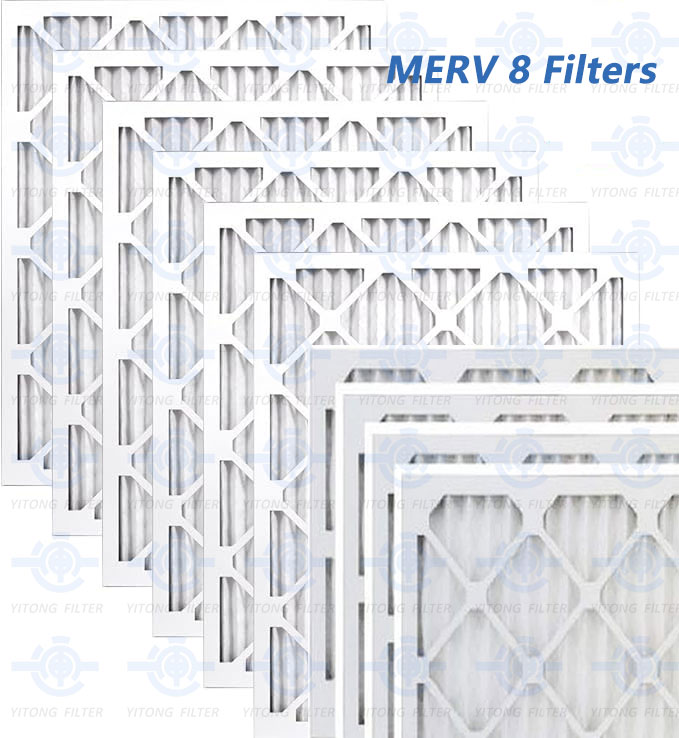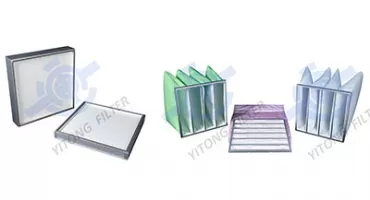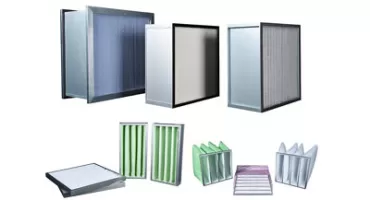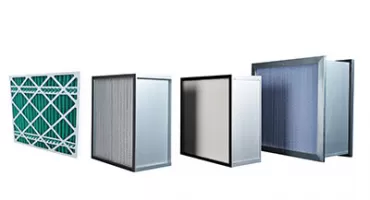 October 31, 2024
October 31, 2024
In recent years, we’ve seen a growing interest in indoor air quality (IAQ). With concerns over allergens, dust, and pollution, many homeowners and businesses are turning to HVAC systems to keep their air clean. One critical component in these systems is the air filter, and MERV 8 filters have become a popular choice for many. But what exactly are MERV 8 filters, and are they the right fit for your needs? In this guide, we’ll cover everything you need to know about MERV 8 air filters, from how they work to when you should replace them.

MERV stands for Minimum Efficiency Reporting Value, which is a standard rating system used to evaluate how well an air filter captures particles of various sizes. MERV ratings range from 1 to 20, with higher numbers indicating greater efficiency at filtering smaller particles.
A MERV 8 filter is considered a medium-efficiency filter. It’s capable of trapping particles like dust, pollen, mold spores, and even some pet dander, making it a solid choice for improving indoor air quality in both residential and commercial spaces.
When selecting an air filter, understanding MERV ratings is crucial. A higher MERV rating doesn’t necessarily mean a better filter for every situation. Here’s a quick comparison to highlight why MERV 8 filters might be ideal for you:
- MERV 1-4: These filters offer minimal particle capture efficiency, mainly removing large particles like carpet fibers. They’re commonly found in window AC units but don’t significantly improve indoor air quality.
- MERV 5-8: A MERV 8 filter sits within this range, making it efficient enough to capture common airborne particles without obstructing airflow. This is a sweet spot for most homes and small commercial HVAC systems.
- MERV 9-12: These filters capture even smaller particles but may reduce airflow, which can strain some HVAC systems.
- MERV 13+: Common in hospitals and clean rooms, these filters capture even viruses but aren’t usually necessary for typical residential or commercial spaces due to cost and airflow restrictions.
Choosing a MERV 8 air filter offers a range of benefits, especially if you're looking to balance particle filtration levels and energy efficiency. Here are some of the top advantages:
1. Improved Indoor Air Quality: MERV 8 filters capture common allergens like pollen and dust, improving air quality without putting excess strain on your HVAC system.
2. Allergy Relief: If you or your family members suffer from allergies, a MERV 8 filter is effective at removing many allergy-inducing particles.
3. Cost-Effective Option: Compared to higher MERV-rated filters, MERV 8 filters are more affordable and energy-efficient, providing a good balance between price and performance.
4. Versatile Applications: Suitable for both residential and commercial HVAC systems, MERV 8 filters are widely compatible with standard HVAC setups.
Air filtration efficiency is essential for maintaining good indoor air quality. MERV 8 filters achieve a balance of particle capture efficiency and airflow that makes them effective for regular household use. They can trap particles in the 3 to 10-micron range, which includes common indoor pollutants like:
- Dust
- Pollen
- Mold spores
- Pet dander
This makes MERV 8 filters particularly effective at reducing airborne allergens, creating a cleaner environment without needing the extensive filtration of a higher-rated filter.
You might be wondering why not go for a higher rating, like MERV 13. Here’s the key difference:
- MERV 8: Ideal for trapping larger particles and maintaining optimal airflow. This filter level is suitable for most homes and small businesses where the focus is on controlling dust, pollen, and basic allergens.
- MERV 13: This filter captures finer particles, including some bacteria and viruses. However, it can restrict airflow more than a MERV 8 filter, which may put extra strain on an HVAC system, especially older ones.
For many households, a MERV 8 filter provides sufficient filtration without the extra cost and potential drawbacks of a MERV 13 filter.
Not all MERV 8 filters are the same. The type of filter media plays a role in both effectiveness and durability. Here are some common types:
1. Fiberglass Filters: These are often cheaper but less durable. They can handle larger particles effectively but need to be replaced more frequently.
2. Pleated Filters: These are made from a denser material and have a larger surface area, allowing them to trap more particles. Pleated filters generally last longer and provide better filtration than fiberglass options.
While MERV ratings measure the efficiency of filters at capturing particles, the Clean Air Delivery Rate (CADR) indicates how quickly a filter can clean the air in a room. Although CADR is more commonly associated with air purifiers, it’s still helpful to know that a MERV 8 filter can contribute to an improved CADR, especially when regularly replaced.
One of the most critical aspects of maintaining effective air filtration is knowing when to replace your MERV 8 filter. Here’s a basic guideline:
- Residential Use: Generally, a MERV 8 filter should be replaced every 2-3 months in a typical household. However, homes with pets or smokers may need to replace their filters more frequently.
- Commercial HVAC Systems: For businesses, it’s recommended to check filters monthly and replace them every 1-2 months, depending on the environment and usage.
Keeping a regular replacement schedule is essential because a clogged filter can hinder airflow, reducing the filter’s efficiency and potentially damaging the HVAC system.
A MERV 8 filter offers a balanced level of filtration that’s ideal for most residential and commercial spaces. If you’re aiming for basic air quality improvement without overburdening your HVAC system, MERV 8 is a reliable choice. Here’s a quick checklist to see if it’s suitable for your needs:
- You need an air filter that captures allergens and larger particles, like dust and pollen.
- You want an affordable filter that doesn’t require frequent replacements.
- You prefer a filter that maintains good airflow and doesn’t overstrain your HVAC system.
If you need more intense filtration, such as removing odors or ultra-fine particles, you might want to look into higher-rated options. However, for most households, a MERV 8 filter offers a perfect balance of efficiency, cost, and comfort.
Conclusion
MERV 8 filters provide a practical solution for anyone looking to improve indoor air quality without overspending. They’re efficient enough to capture common allergens, dust, and larger particles while ensuring that airflow remains steady. Whether for home or business, this level of filtration can make a noticeable difference in the cleanliness of your indoor air and the health of your HVAC system.
Remember, choosing the right filter is about finding the best match for your specific needs. A MERV 8 filter might not be the highest-rated filter out there, but for many, it’s the ideal choice, offering solid performance, value, and comfort. So next time you’re looking to replace your HVAC filters, consider giving MERV 8 filters a try—they might just be the perfect fit for your home or business.
 Aug. 09, 2023
Differences between F8 and F6 Medium Efficiency Filters
Aug. 09, 2023
Differences between F8 and F6 Medium Efficiency Filters
 May. 24, 2023
Install and Utilization of Air Filters in Chicken Coops
May. 24, 2023
Install and Utilization of Air Filters in Chicken Coops
 Jan. 26, 2024
Which Air Filter Reigns Supreme for HVAC Systems: HEPA or MERV?
Jan. 26, 2024
Which Air Filter Reigns Supreme for HVAC Systems: HEPA or MERV?